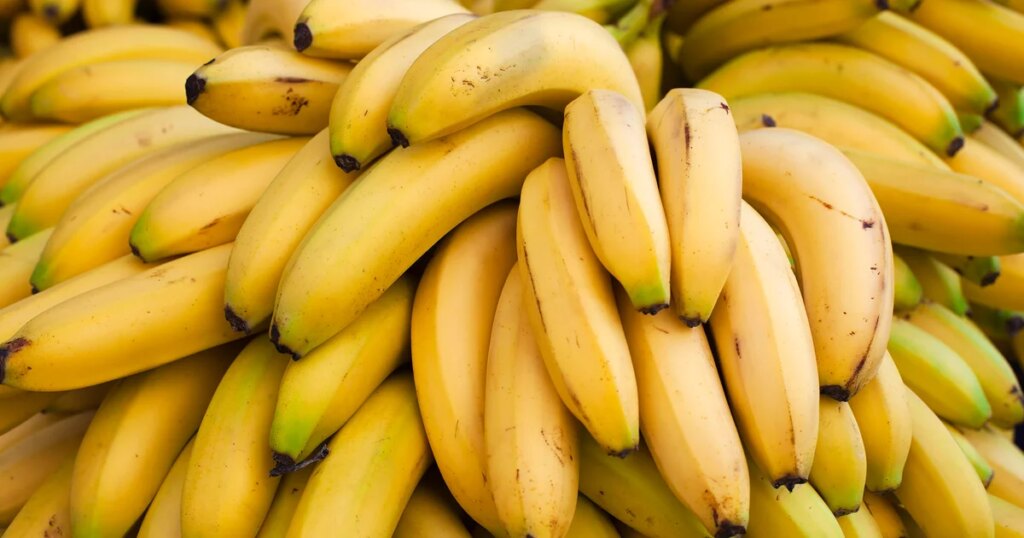In a significant policy move, President Trump has exempted various food items from his administration’s recently imposed tariffs. The list includes staples like beef, coffee, and bananas, responding to rising food prices and public concerns about inflation. This exemption aligns with ongoing trade negotiations with several Latin American countries, aimed at addressing economic challenges faced by American consumers.
| Article Subheadings |
|---|
| 1) Overview of Tariff Exemptions |
| 2) Details of the Food Products Included |
| 3) Economic Implications for Consumers |
| 4) Trump’s Response to Rising Beef Prices |
| 5) Political Repercussions and Voter Sentiment |
Overview of Tariff Exemptions
On Friday, President Trump announced an exemption for various food products from the extensive tariffs his administration had put in place. This decision comes as the U.S. grapples with increasing food prices and public discontent regarding the cost of living. The White House released a statement indicating that these exemptions were part of the ongoing efforts to alleviate pressure on consumers struggling with inflated prices. Trump’s administration has faced growing criticism related to economic management, making this move pivotal in his strategy to regain public faith.
Details of the Food Products Included
The exempted food items, as detailed in an executive order, include essential tropical products commonly imported into the United States. These products are not widely produced domestically and include coffee, tea, bananas, mangoes, avocados, coconuts, pineapples, cocoa, and spices like nutmeg. Additionally, products like beef, oranges, and tomatoes have also been included. The analysis behind this exemption focuses on both consumer need and the lack of domestic production for many of these items, making them unsuitable for tariff protection measures.
Economic Implications for Consumers
By eliminating tariffs ranging from 10% to 40%, the administration aims to lower consumer prices on these staple items. Reports from various economic analysts have suggested that the exemption should positively influence retail prices. However, despite these efforts, certain food categories may still be subject to other forms of tariffs, leaving some ambiguity about the effectiveness of these measures. The inflation rate for food commodities has shown fluctuations, with recent federal data indicating a year-over-year increase of 3.1% as of September, reflecting a sharp decline from the peak reported in 2022.
Trump’s Response to Rising Beef Prices
One of the focal points of this exemption is the significant surge in beef prices, which spiked 12.9% year-over-year. President Trump has expressed concern regarding the financial practices of foreign-owned meat packing companies, attributing price increases to collusion and manipulation. The president’s response includes considering importing more beef from countries like Argentina, a situation that could complicate relations with American ranchers. While his administration aims to alleviate consumer costs, ranchers have publicly criticized such measures due to fears of a potential market disruption.
Political Repercussions and Voter Sentiment
As economic uncertainty looms, the move to exempt food items from tariffs comes amid increasing voter apprehension concerning inflation. Polling data reveals widespread nervousness about rising prices and skepticism toward the administration’s strategies to combat these challenges. Despite claiming improvements since his presidency began, the president’s assertion that costs are lower has met resistance from economists, who warn of the adverse conditions imposed by tariffs. This predicament poses a significant challenge for the administration, particularly with the approaching election cycle.
| No. | Key Points |
|---|---|
| 1 | President Trump exempts essential food items from tariffs to combat rising prices. |
| 2 | Exempted items include tropical products, beef, oranges, and tomatoes. |
| 3 | Tariff exemptions aim to lower consumer prices amidst rising inflation concerns. |
| 4 | Concerns over beef price hikes lead Trump to consider importing more beef from Argentina. |
| 5 | Voter sentiment reflects growing anxiety about inflation and skepticism regarding Trump’s economic strategies. |
Summary
The exemption of various food items from tariffs signifies an important shift in President Trump’s economic policy, driven by public concern over rising prices and inflation. As the administration engages in trade negotiations with Latin American countries, the impact of these exemptions on consumer prices remains to be fully assessed. The political ramifications could play a crucial role in shaping voter sentiment ahead of upcoming electoral challenges.
Frequently Asked Questions
Question: What prompted the tariff exemptions on food items?
The exemptions were prompted by rising food prices and public frustration over inflation, creating an urgent need for the administration to take action.
Question: Which food items are exempt from tariffs?
Exempted food items include beef, coffee, bananas, and various tropical products such as avocados and mangoes.
Question: How might these tariff exemptions affect consumers?
The exemptions are expected to reduce consumer prices on several food products, but their overall effectiveness will depend on various market dynamics.


